![Dean, Elton / Paul Dunmall / Paul Rogers / Tony Bianco: Remembrance [2 CDs] (NoBusiness) Dean, Elton / Paul Dunmall / Paul Rogers / Tony Bianco: Remembrance [2 CDs] (NoBusiness)](https://www.teuthida.com/productImages/misc4/18052.jpg)
A double CD of four groupings from duo to quartet of Elton Dean (alto sax), Paul Dunmall (tenor sax), Paul Rogers (bass) and Tony Bianco (drums) recording at Steam Room Studios in London, 2004.
Out of Stock
Quantity in Basket: None
Log In to use our Wish List
Shipping Weight: 5.00 units
Sample The Album:
Elton Dean-alto saxophone
Paul Dunmall-tenor saxophone
Paul Rogers-bass
Tony Bianco-drums
Click an artist name above to see in-stock items for that artist.
UPC: 4779022079016
Label: NoBusiness
Catalog ID: NBCD 59-60
Squidco Product Code: 18052
Format: 2 CDs
Condition: New
Released: 2013
Country: Lithuania
Packaging: 2 CDs in a single Jewel tray
Recorded on February 9th, 2004 at Steam Room Studios, London.
A double CD of four groupings from duo to quartet of Elton Dean (alto sax), Paul Dunmall (tenor sax), Paul Rogers (bass) and Tony Bianco (drums) recording at Steam Room Studios in London, 2004.

The Squid's Ear!
Artist Biographies
• Show Bio for Elton Dean "Elton Dean (28 October 1945 Š 8 February 2006) was an English jazz musician who performed on alto saxophone, saxello (a variant of the soprano saxophone) and occasionally keyboards. Dean was born Nottingham, England, moving to Tooting, London, soon after his birth. From 1966 to 1967, Dean was a member of the band Bluesology, led by Long John Baldry. The band's pianist, Reginald Dwight, afterward combined Dean's and Baldry's first names for his own stage name, Elton John. Dean established his reputation as a member of the Keith Tippett Sextet from 1968 to 1970, and in the band Soft Machine from 1969 to 1972. Shortly before leaving Soft Machine he started his own group, Just Us. From 1975 to 1978 he led a nine-piece band called Ninesense, performing at the Bracknell Jazz Festival and similar events. His own groups since then, usually quartets or quintets, have most often worked in the free jazz mode, with little or no pre-composed material such as Soft Heap with Mark Hewins. At the same time, he continued to work with other groups that are very composition-based, such as guitarist Phil Miller's In Cahoots, drummer Pip Pyle's Equipe Out, and various projects with former Soft Machine bassist Hugh Hopper. In 2002, Dean and three other former Soft Machine members (Hugh Hopper, drummer John Marshall, and guitarist Allan Holdsworth) toured and recorded under the name Soft Works. With another former Soft Machine member, guitarist John Etheridge, replacing Holdsworth, they subsequently toured and recorded as Soft Machine Legacy, playing some pieces from the original Soft Machine repertoire as well as new works. Featuring Dean, three albums of the Legacy have been released: Live in Zaandam (CD, rec. 2005/05/10), New Morning - The Paris Concert (DVD, rec. 2005/12/12) and the studio album Soft Machine Legacy (CD, 2006, rec. 2005). Dean's last musical collaborations also included those with Soft Bounds, a quartet composed of Dean, Hugh Hopper, Sophia Domancich and Simon Goubert, and also with Alex Maguire's project Psychic Warrior. Dean died on 8 February 2006 after more than a year of "heart and liver problems," on the day before he was to join a reunion of Soft Machine." ^ Hide Bio for Elton Dean • Show Bio for Paul Dunmall "Paul Dunmall was born 1953, Welling, Kent; saxophones, clarinets, bagpipes, miscellaneous wind instruments. As told to Watson (1989), Paul Dunmall was a working class lad from Welling who left school at 15 and spent two years repairing instruments at Bill Lewington's shop in Shaftesbury Avenue, London. He turned professional at 17 and, following two years touring Europe with a progressive rock band (Marsupilami), joined the Divine Light Mission, a spiritual movement led by Guru Maharaj Ji and moved from London to an ashram in America. He told Isham (1997), 'I moved to an ashram full of musicians - a music ashram - but it was still spiritual practice. That gave me a spiritual understanding through meditation, Coltrane's music, and all the rest of it, led me to that, and that's been a fundament in my life ever since - that I can actually sit down and meditate and forget my body. I realise how important meditation is in my life... but I don't do it so much these days.' During the three years he lived in America, Dunmall played with Alice Coltrane (in a big band with the Divine Light Mission) and toured for twelve months with Johnny 'Guitar' Watson. Back in England, he played with Danny Thompson and John Stevens as well as folk musicians Kevin Dempsey, Martin Jenkins and Polly Bolton and then, in 1979 he became a founder member of Spirit Level (Tim Richards, piano; Paul Anstey, bass; Tony Orrell, drums), staying with the group until 1989. During his time with Spirit Level, Dunmall joined the two-tenor front line group Tenor Tonic with Alan Skidmore (1985), played and broadcast with Dave Alexander and Tony Moore in the DAM trio (1986) and formed the Paul Dunmall Quartet with Alex Maguire, Tony Moore and Steve Noble (1986). In 1987 Paul Dunmall joined the London Jazz Composers Orchestra, being a constant member and appearing on all their recorded output from that date onward. The following year the improvising collective quartet Mujician was formed by Keith Tippett, Dunmall, Paul Rogers and Tony Levin and has continued to be a regular performing, touring and recording group, sometimes augmented by other musicians. Dunmall has also played in a trio with Keith and Julie Tippetts and in Keith Tippett's big band Tapestry. Two other duos have also sprung out of Mujician: Dunmall with Tony Levin (two CD releases) and Dunmall in folk-influenced outings with Paul Rogers. Another regular playing partner throughout this period and up until the present includes Elton Dean. In 1995, two trios were formed, the first with Oren Marshall, tuba and Steve Noble, percussion, the second with John Adams, guitar and Mark Sanders, percussion, these sometimes coming together as a quintet. More recently, Dunmall has played in another reeds/guitar/drums trio with Philip Gibbs and Tony Marsh and there appears to be regular crossover between all these players. The Paul Dunmall Octet was founded in 1997." Dunmall also has released a large number of albums and a box set on the UK FMR label, in various configurations and instrumentation. ^ Hide Bio for Paul Dunmall • Show Bio for Paul Rogers "Paul Rogers - Double Bass Born : April 27th, 1956 - Chester (Wales)Past Bands : Keith Tippett Sextet (1978, 1983-84), Elton Dean Quintet (1979, 1995), John Stevens Away (1980), Skidmore/Rogers/Levin (1984-87), Dunmall/Rogers/Levin (1984-87), Mujician (1988-), Pip Pyle's Equip'Out (1990-95), Sophia Domancich Trio (1990-99)Current Projects : Mujician + various jazz groups A Short Bio: For Paul Rogers, music began in earnest at age 12, when he first picked up an acoustic guitar. In a way this was the shape of things to come, since that particular guitar only had four strings left. Two years later, he took up bass guitar, and then, with the money earned from various jobs, finally acquired his own double bass in 1973. Moving to London in 1974, Rogers started gigging in pubs, until he met saxophone player Mike Osborne, and through him was introduced to the free jazz scene, soon sharing the stage with such luminaries as Elton Dean, Keith Tippett, John Stevens, Howard Riley, Stan Tracey, Ken Hyder, Alan Skidmore, Evan Parker, Tony Marsh, Kenny Wheeler and John Etheridge. During this period, he was rarely in the same group for too long, preferring to accumulate experience through associations with as many musicians as possible. After 1984, however, he started working on a regular basis with drummer Tony Levin, in trios with either Alan Skidmore or Paul Dunmall. In 1988, the Dunmall/Rogers/Levin trio with absorbed into the acclaimed improvising quartet Mujician, which associated them with pianist Keith Tippett. The group has existed ever since, playing totally spontaneous music, and released several albums for the US label Cuneiform. In 1987, Rogers moved to the USA, living in New York City (and more precisely Bronx) for a year and a half, and playing with the likes of Gerry Hemingway, Don Byron, Myra Melford, Mark Dresser, Tom Cora and Tim Berne. Soon after returning to Europe, he was recruited by Pip Pyle for the new line-up of his jazz quartet Equip'Out. Elton Dean and Sophia Domancich completed the group, which only lasted for a handful of gigs and an album recording, "Up!". Although Equip'Out didn't record after Domancich left in 1991, the band continued until 1995, with Francis Lockwood taking over on piano, followed by Patrice Meyer who introduced guitar into a previously piano-based line-up. Having established both a musical and personal relationship with Sophia Domancich during their Equip'Out days, Rogers joined her trio, with Bruno Tocanne on drums, soon replaced by Tony Levin, a line-up which remained in place until 1999 and recorded several acclaimed albums. Now settled in France, Rogers has also worked with such improvisers as Michel Doneda and Daunik Lazro, but remains active on an international basis, having worked in recent years with Andrew Cyrille, John Zorn, Derek Bailey, Lol Coxhill, Barry Guy, Joachim Kuhn, Alex von Schlippenbach. Rogers is also a composer, and has been involved with different bands playing his tunes, among which the most notable was 7 R.P.M. and the Paul Rogers Sextet (which did a 10-date UK tour in November 1990 performing his 'Anglo-American Sketches' suite). He received three commisions from the Arts Council of Great Britain to compose music for his own band. Under his own name, he released a quartet album with frequent associates Paul Dunmall, Sophia Domancich and Tony Levin, as well as an entirely solo set. Among Rogers' tours, four of the most outstanding were the Harry Beckett Trio middle east tour in 1984, Evan Parker Trio tour of Rumania, Yugaslavia and Greece in 1985, First House tour of South America in 1986, and the Dennis Gonzales Band tour of the USA, featuring Carlos Ward and Tim Green in 1990." ^ Hide Bio for Paul Rogers • Show Bio for Tony Bianco "The unlimited vistas of music show us our own limitless perceptions of our being. My hopes of music are my hopes for art and humanity. I was born in New York City, the son of a drummer and the grandson of a guitar player. I always saw music as a work of heroes. My father saw music more as a vocation than an occupation. I was lucky. Growing up in New York City I could experience the greatest sounds in jazz. Seeing these greats play was a blessing. I remember seeing Elvin, Mingus, Art Blakey, Woody Shaw, Miles, Liebman, Tony Williams, Dexter Gordon, Ron Carter. What an experience. This intensified my love for this music. I always thought that there was a point to it all. A reason. I took chances in my life because of this. I was always single-minded. I had a hard time compromising. I knew being a musician was a career, but I was never business minded. I just floated. Of course, my father was always anxious for me. He wanted me to play some kind of jazz he understood, but I just played what I heard at the time. I felt jazz was a very contemporary sound, not just a sound that was based on the past although I have great respect for the past. I think these perceptions come naturally from the time we live in. Progress. What is sound? What is perception? I never felt I was good enough. A father who loved the greats can be very intimidating. I was always searching for some perception that was my own. There was a time I thought 'forget music - it's impossible. You'll never have your own attitude'. Then I heard John Coltrane. He made me feel it was possible. Praise and Thanks. Of course growing up in New York I thought these sublime thoughts but I had to make a living. I thought of myself as a drummer. I did what I thought a drummer should do. I became, of course, less idealistic and did all kinds of work - any work that would come my way. This included all genres. I thought of myself as a jazz musician but I seemed to be playing everything else except jazz. I got a steady gig in New York City in a warm-up band in a famous comedy club - Catch a Rising Star. It's a legendary comic club that a lot of the great comedians came through (Jerry Seinfeld, Chris Rock, Robin Williams, Richard Belzer). It was actually a great experience - kind of like a talkshow band (Jay Leno, David Letterman). It was a steady gig and it was real easy, and of course I could just float. The bass player on the gig was Lloyd Mair. He was a devotee of avant garde music and jazz. He knew some really interesting things about jazz. I learned a lot from him. Lloyd was great. Of course being at this club I played in some pretty interesting situations - Edgar Winter, Pat Benatar. I even played drums behind Andy Kaufman doing his Elvis routine. This club had more of a vibe than anything else. Anyway, it was a steady gig (five years). In that time I explored my own ideas and met a lot of musicians. One became a close friend - a tenor player Mac Goldsberry. He introduced me to a lot of the New York City players even though he was from Texas. Through him I played and recorded with Ed Schuller, Herb Robertson and Charlie Elgart (a commercial FM sounding jazz). I started to write music at that time. I made a recording with John Hart on guitar. At the same time I hooked up with (through Goldsberry) the singer, writer, jazz musician and poet Bob Lennox and his son Adam. Through Adam I first met Liebman. We did a record and gig doing this progressive rock thing. At this time also I also did a recording with Anthony Jackson, the legendary electric bass player. I also started to play more free jazz at this time. But things in New York for me weren't really going well. I broke up with my first wife and was feeling kind of dark. I was really going through a lot. There was a lot more going on than I could write about. You dig? I met some musicians from the University of Miami (Mike Gillis, legendary guitar player and great guy) and went to Japan for a few months with them. On coming back to the U.S. one of the teachers from the University said why don't you come to Miami - maybe we could hook you up with a teaching gig there. Then I thought, well okay, what else is there to do. I went to the International Jazz Educators Seminar at the University to check it out - see if I could get a gig. Anyway, at one of the parties that night I met Liebman, and he said to me 'What are you doing here?' I said maybe I can get a gig teaching here. Then he said forget that - go to Berlin where some of your mates went to live and play jazz (Lennox, Goldsberry). Liebman said that I needed to get out of NYC to see myself. He said if you were born there you needed to get out to feel yourself - New York is such an intense city (that was 1990). Anyway, I decided to got to Berlin - I had some money from that gig in Japan and borrowed some money from my Japanese girlfriend (Naomi) and sold my grandfather's vintage guitar (I got ripped off) and went off to Berlin. I moved to Berlin in 1991. It was great. The Berlin Wall had recently come down and there was a good feeling in the air. I started to do more of the music I wanted to do (jazz). This city had a very free feeling. I started to work with Alex von Schlippenbach and his wife Aki Takase, and Gerd Dudek. I had an opportunity to hang and play with Reggie Workman on a Schlippenbach gig and was very honoured that he seemed to like me. I was learning more about the European free improv scene. At the same time I worked with the late legendary bass player Jay Oliver who influenced me in some rhythmic concepts and attitude. I was also privileged to work with the late gypsey guitarist Costa Lucas. My rhythmic concepts really took a turn when I worked with Hans Hartman (bass and stick player) and Turkish percussionist Mesut Ali - these guys could really play in different time signatures. At this time I was really understanding a different sort of sound. I lived in Berlin until 1995. I felt a longing for some familiarity at this point (the English language). I returned to New York for a few months, then joined my wife (who I met in Berlin) in London. We had enough money for one month's rent and a phone. I had to borrow my first drum set, but somehow met some of the guys. I met Loz Speyer (great guy) who got me a drum set and he introduced me to a lot of the straighter players. I also met Alex McGuire who introduced me to Elton Dean, from where I met the rest of the free scene. I met Paul Dunmall and we played and recorded some great music together. I also made some great music and recordings with Elton. I started to complete some of the ideas I came up with in Berlin. I came up with a project called Freebeat with Elton Dean and sound engineer, Jon Wilkinson. It was a concept of playing through time signatures but playing also free through it. It never materialised as a label-released record but it inspired a lot of ideas. These ideas interested Dave Liebman. I recorded a similar but different project with him in Berlin (2003). These ideas and projects were never released either but I am working on it. The CD 'In a Western Sense' handles some of these same concepts. I think that time signatures are a way of defining phrasing. My music really doesn't watch the time signature as much as the phrasing. Through beats (a drum thing) you can keep a pulse but have no number on the pulse. It's not in 1-1. That's impossible, since the phrasing has to be in one and it's not. It is actually many different time signatures but one pulse. I could explain this in more detail but not on a website bio. Anyway, this concept influenced practically all my musical ideas. Time and no time were brought together. Liebman told me I came into the world to do this. Who knows. The thing is that my improvised and free music seems to have this pulse in it. It is done quite unconsciously on some level (I think it was to do with my studies or working out these concepts) and on another level quite deliberate. I do have a method. Sometimes great complexity is held together by great simplicity. Anyway, I moved to London in 1996 - it's been good and bad - what hasn't? It's been a hard place for me to meet people but I did get some records out. I played and recorded with Paul Dunmall, Elton Dean, Simon Picard, Paul Rutherford, Keith Tippett, Paul Rogers, Marcio Matthos and John Edwards. Some great music was played. I was also very fortunate to meet the band that played 'In a Western Sense' - Zoe Rahman, Carlos Lopez-Real and Oli Hayhurst. I have (probably because I am an American) the need to combine the sounds of straight and free jazz. It is part of my instinct. Like many other musicians at this time. It seems to be what is happening. Reason and chaos, chaos and reason. Maybe it resolves in peace."-Tony Bianco ^ Hide Bio for Tony Bianco
2/6/2026
Have a better biography or biography source? Please Contact Us so that we can update this biography.
2/6/2026
Have a better biography or biography source? Please Contact Us so that we can update this biography.
2/6/2026
Have a better biography or biography source? Please Contact Us so that we can update this biography.
2/6/2026
Have a better biography or biography source? Please Contact Us so that we can update this biography.
Track Listing:
CD 1
1. Trio I (Dunmall / Rogers / Bianco) 23:27
2. Quartet (Dean / Dunmall / Rogers / Bianco) 37:32
CD 2
1. Duo (Rogers / Bianco) 28:31
2. Trio II (Dean / Rogers / Bianco) 26:02
Improvised Music
Jazz
Free Improvisation
London & UK Improv & Related Scenes
Quartet Recordings
Instant Rewards
Search for other titles on the label:
NoBusiness.


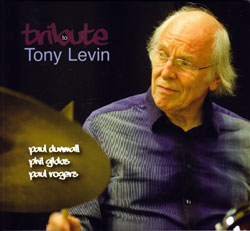
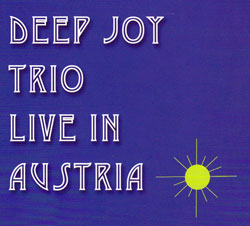
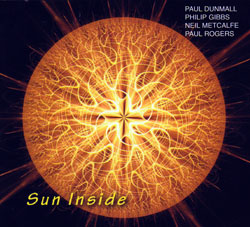




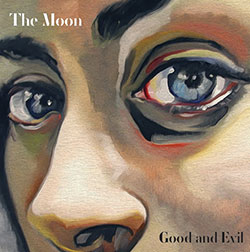
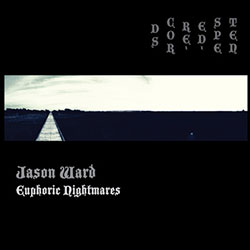




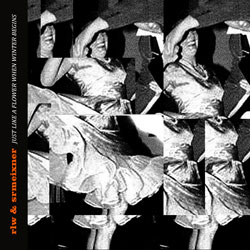












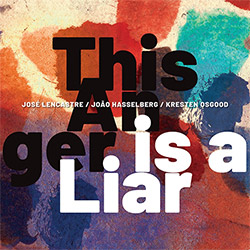


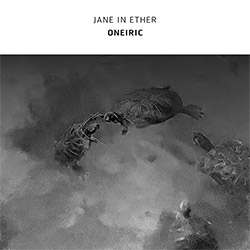
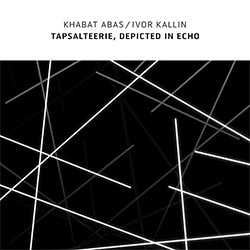
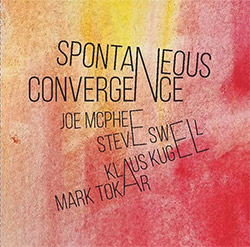

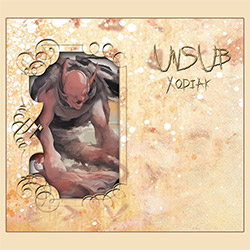
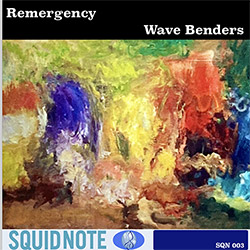
![Collins, Nicolas / Birgit Ulher: Spark Gap [CD + DOWNLOAD]](https://www.teuthida.com/productImages/misc4/37072.jpg)
![Ehrlich, Marty / Julius Hemphill : Circle the Heart [CD + DOWNLOAD]](https://www.teuthida.com/productImages/misc4/37073.jpg)
![John Butcher : Away, I Was [CD + DOWNLOAD]](https://www.teuthida.com/productImages/misc4/37074.jpg)
![Edwards, Isidora / Biliana Voutchkova / Zosha Warpeha : A Far Within [CD + DOWNLOAD]](https://www.teuthida.com/productImages/misc4/37075.jpg)
![Futterman, Joel: Absorb [DIGITAL RELEASE]](https://www.teuthida.com/productImages/misc4/37114.jpg)
![Futterman, Joel: Reflective [DIGITAL RELEASE]](https://www.teuthida.com/productImages/misc4/37115.jpg)
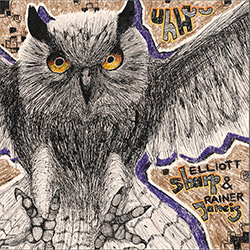
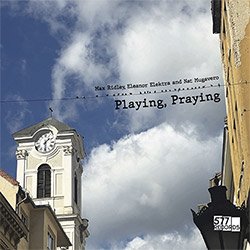

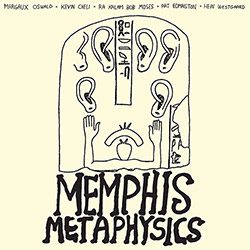
![Hoffman, Christopher: REX [VINYL]](https://www.teuthida.com/productImages/misc4/36934.jpg)
![Wrens: Half Of What You See [VINYL]](https://www.teuthida.com/productImages/misc4/37095.jpg)

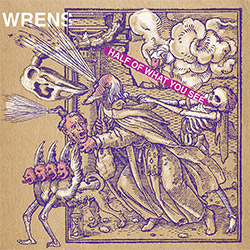
![Cartier, Pierre: Chansons de Douve [2 CDs]](https://www.teuthida.com/productImages/misc3/cartierChansonsDouve.jpg)



![Davies, Angharad / Burkhard Beins : Meshes Of The Evening [VINYL]](https://www.teuthida.com/productImages/misc4/36990.jpg)
![Bussmann, Nicholas / Sven-Ake Johansson / Yan Jun: Tea Time [Vinyl]](https://www.teuthida.com/productImages/misc4/36991.jpg)
![Feldman, Morton / GBSR Duo w/ Taylor MacLennan: Trios [6 CD BOX SET]](https://www.teuthida.com/productImages/misc4/37020.jpg)
![Williams, Jessica: Blue Abstraction: Prepared Piano Project 1985-1987 [VINYL]](https://www.teuthida.com/productImages/misc4/37080.jpg)
![Levin, Daniel / Laurent Estoppey: Freedom From The Known [VINYL]](https://www.teuthida.com/productImages/misc4/37091.jpg)
![Fagaschinski, Kai: Aerodynamics [VINYL 2 LPs]](https://www.teuthida.com/productImages/misc4/36992.jpg)
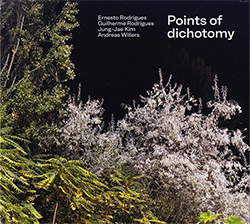
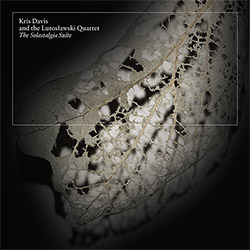






![Parker, Evan / Andrea Centazzo: Bullfighting On Ice! Live In Padova 1977 [VINYL]](https://www.teuthida.com/productImages/misc4/37064.jpg)
![Curran, Alvin / Andrea Centazzo / Evan Parker: Real Time [VINYL]](https://www.teuthida.com/productImages/misc4/37065.jpg)
![Curran, Alvin / Andrea Centazzo / Evan Parker: Real Time Two [VINYL]](https://www.teuthida.com/productImages/misc4/37066.jpg)
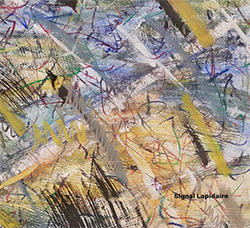
![Allbee, Liz: Breath Vessels [VINYL]](https://www.teuthida.com/productImages/misc4/37012.jpg)
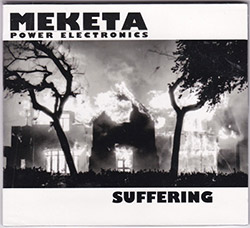
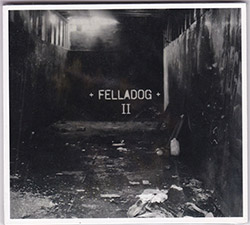

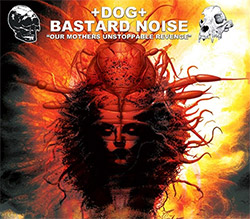

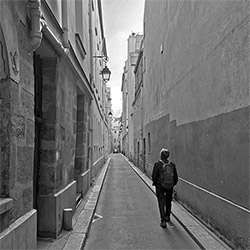
![Belorukov, Ilia / Alex Riva: Wrestling For Futility [CASSETTE w/DOWNLOAD]](https://www.teuthida.com/productImages/misc4/36994.jpg)


![Genthon, Anouck / Lionel Marchetti: Suite Blanche [2 CDs]](https://www.teuthida.com/productImages/misc4/36642.jpg)
![Toeplitz, Kasper T.: Erosions Programmees [CD + BOOKLET]](https://www.teuthida.com/productImages/misc4/36639.jpg)
![Gate, The : Almost Live [CASSETTE + MAGAZINE]](https://www.teuthida.com/productImages/misc4/36836.jpg)






![A Magic Whistle: The Solar Cell [VINYL]](https://www.teuthida.com/productImages/misc4/36658.jpg)

![McGee, Hal: Columbus Expedition [Cassette w/ Download]](https://www.teuthida.com/productImages/misc4/36650.jpg)


![Jaeger, Kassel: Fernweh [VINYL 2 LPs]](https://www.teuthida.com/productImages/misc4/36541.jpg)


![Frey, Jurg : Composer, Alone [3 CDs]](https://www.teuthida.com/productImages/misc4/36927.jpg)








![Frey, Jurg with ensemble]h[iatus: Je Laisse A La Nuit Son Poids D](https://www.teuthida.com/productImages/misc4/36988.jpg)




![Pisaro-Liu, Michael: Within (2) / Appearance (2) [2 CDs]](https://www.teuthida.com/productImages/misc4/36831.jpg)










![Musicworks Magazine: #151 Summer 25 [MAGAZINE + CD]](https://www.teuthida.com/productImages/misc4/36559.jpg)

![Brown, Dan / Dan Reynolds: Live At The Grange Hall [unauthorized][CASSETTE]](https://www.teuthida.com/productImages/misc4/36245.jpg)

![Zorn, John: The Song of Songs [CD + CD BOOK]](https://www.teuthida.com/productImages/misc4/36923.jpg)

![Coultrain: Mundus [COLORED VINYL]](https://www.teuthida.com/productImages/misc4/33056.jpg)
![Hprizm: Signs Remixed [COLORED VINYL]](https://www.teuthida.com/productImages/misc4/30635.jpg)
![Halls Of the Machine: All Tribal Dignitaries [CASSETTE w/ DOWNLOAD]](https://www.teuthida.com/productImages/misc4/36134.jpg)



![Koenjihyakkei: Live at Club Goodman [2 CDs]](https://www.teuthida.com/productImages/misc4/36111.jpg)

![Sorry For Laughing (G. Whitlow / M. Bates / Dave-Id / E. Ka-Spel): Rain Flowers [2 CDS]](https://www.teuthida.com/productImages/misc4/35985.jpg)

![Rolando, Tommaso / Andy Moor : Biscotti [CASSETTE w/ DOWNLOADS]](https://www.teuthida.com/productImages/misc4/36106.jpg)


![Electric Bird Noise / Derek Roddy: 8-10-22 [CD EP]](https://www.teuthida.com/productImages/misc4/35970.jpg)








![Elephant9 : Mythical River [VINYL]](https://www.teuthida.com/productImages/misc4/34624.jpg)



![Elephant9 with Terje Rypdal: Catching Fire [VINYL 2 LPs]](https://www.teuthida.com/productImages/misc4/35355.jpg)
![Coley, Byron: Dating Tips for Touring Bands [VINYL]](https://www.teuthida.com/productImages/misc4/17906.jpg)

![Lost Kisses: My Life is Sad & Funny [DVD]](https://www.teuthida.com/productImages/misc4/lostKissesDVD.jpg)